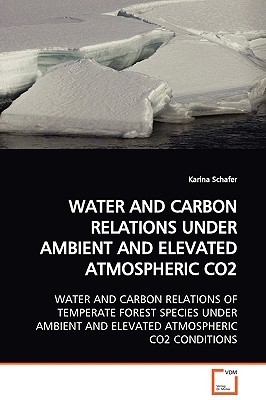
- We will send in 10–14 business days.
- Author: Karina Schafer
- Publisher: VDM Verlag
- ISBN-10: 3639120752
- ISBN-13: 9783639120752
- Format: 15.2 x 22.9 x 0.9 cm, softcover
- Language: English
- SAVE -10% with code: EXTRA
Water and Carbon Relations Under Ambient and Elevated Atmospheric Co2 (e-book) (used book) | bookbook.eu
Reviews
Description
Increasing atmospheric CO2 concentration decreases stomatal conductance (GS) in many species with potentially direct affects on both water and carbon (C) cycles and secondary effects on ecosystem processes such as competition. Some of these direct effects were investigated in this study at the Duke Forest free-air carbon transfer and storage enrichment experiment (FACE), focusing on sap-flux scaled mean canopy GS, water use, forest canopy C uptake and hydraulic properties of two canopy species, Pinus taeda L. (loblolly pine) and Liquidambar styraciflua L. (sweetgum), and two sub- canopy species, Cornus florida L. (flowering dogwood) and Ulmus alata Michx. (winged elm), subjected to ambient CO2 and elevated atmospheric CO2 concentrations over three and a half years after onset of fumigation in 1996 (1997-2000).
EXTRA 10 % discount with code: EXTRA
The promotion ends in 17d.17:25:06
The discount code is valid when purchasing from 10 €. Discounts do not stack.
- Author: Karina Schafer
- Publisher: VDM Verlag
- ISBN-10: 3639120752
- ISBN-13: 9783639120752
- Format: 15.2 x 22.9 x 0.9 cm, softcover
- Language: English English
Increasing atmospheric CO2 concentration decreases stomatal conductance (GS) in many species with potentially direct affects on both water and carbon (C) cycles and secondary effects on ecosystem processes such as competition. Some of these direct effects were investigated in this study at the Duke Forest free-air carbon transfer and storage enrichment experiment (FACE), focusing on sap-flux scaled mean canopy GS, water use, forest canopy C uptake and hydraulic properties of two canopy species, Pinus taeda L. (loblolly pine) and Liquidambar styraciflua L. (sweetgum), and two sub- canopy species, Cornus florida L. (flowering dogwood) and Ulmus alata Michx. (winged elm), subjected to ambient CO2 and elevated atmospheric CO2 concentrations over three and a half years after onset of fumigation in 1996 (1997-2000).


Reviews